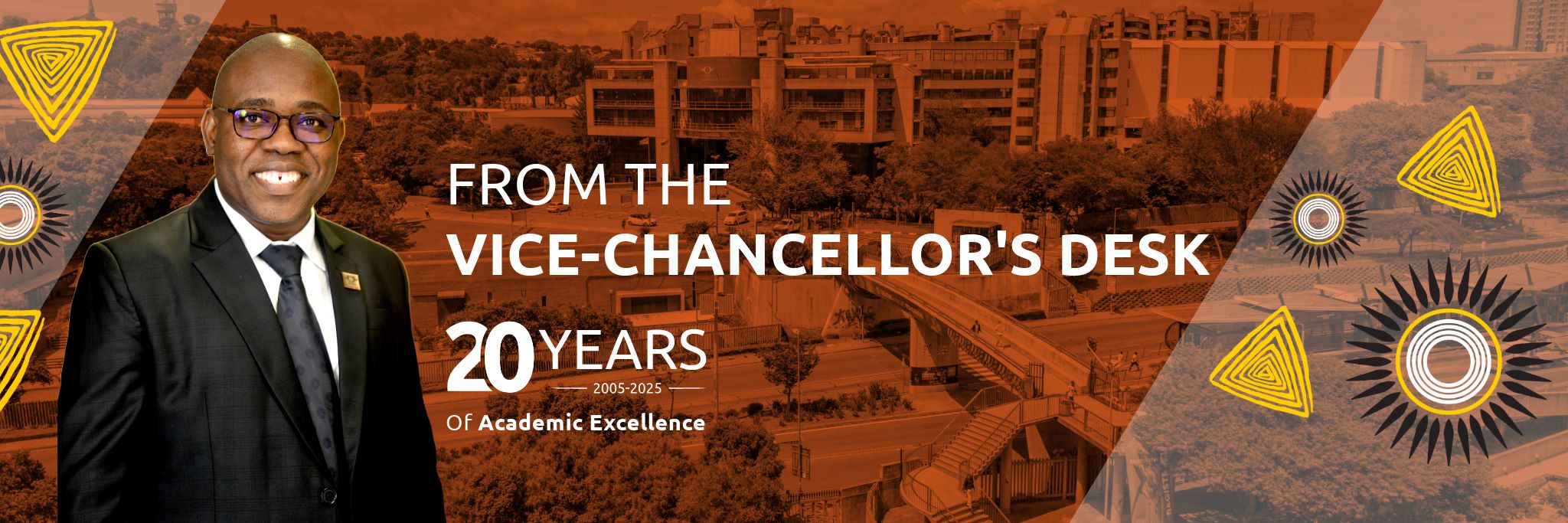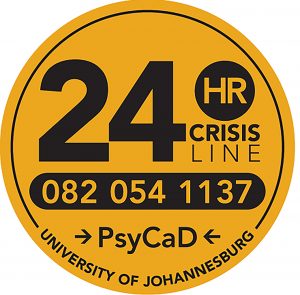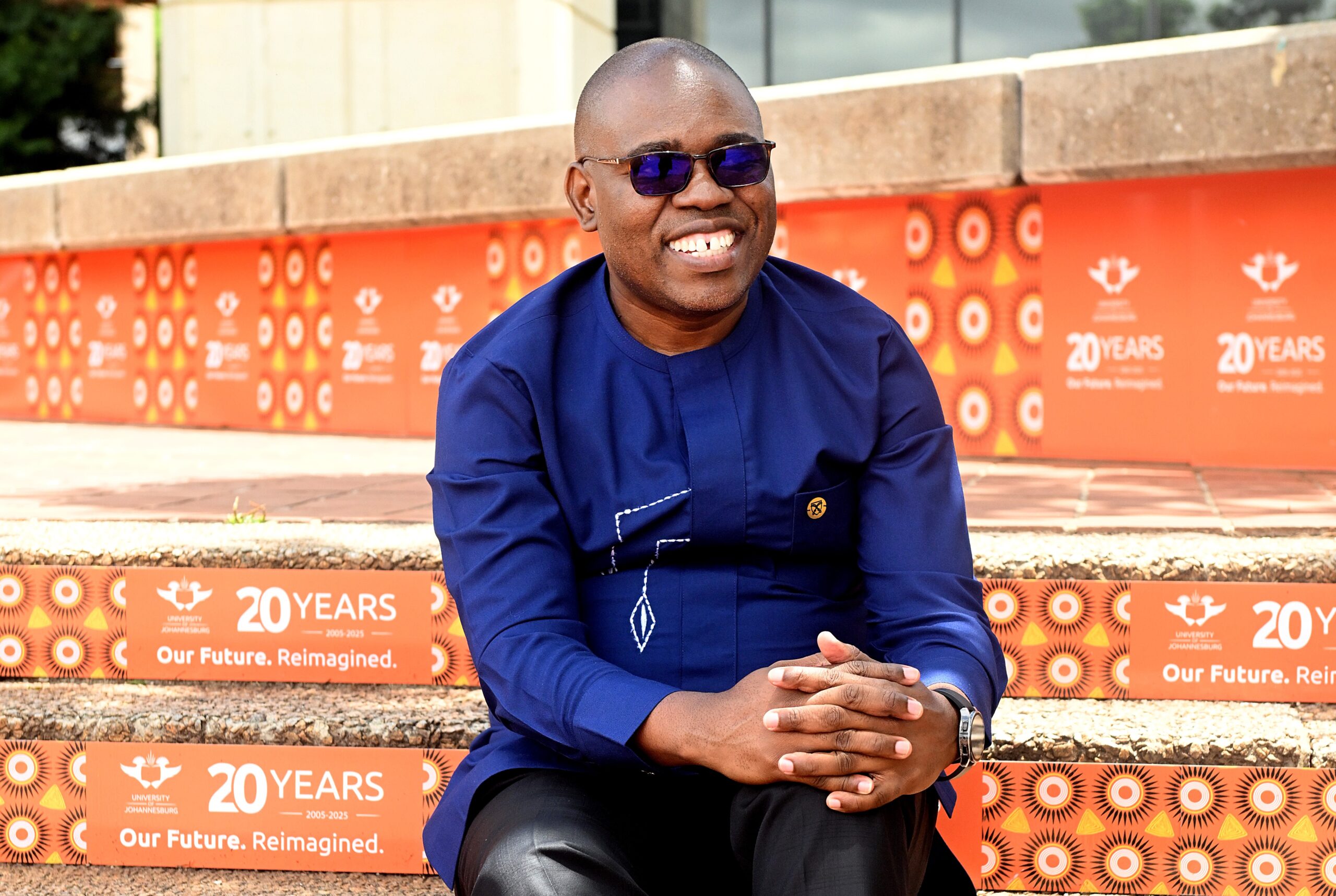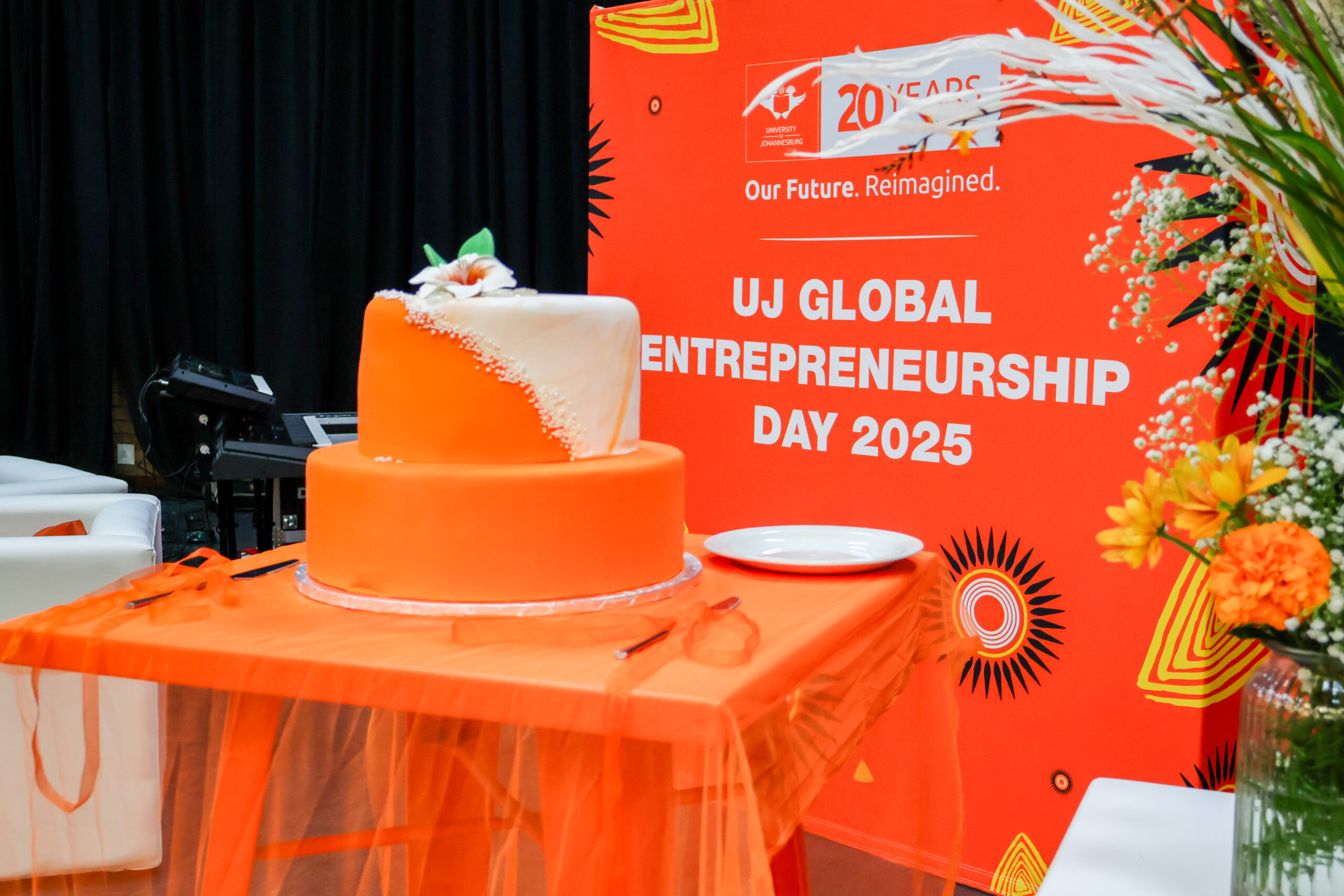
Dear UJ community,
As we move well into the 2025 year-end examination period, I want to congratulate each of our students who has reached this important milestone in their academic journey. As we enter the final stretch of a year in which our University celebrates its 20th anniversary, I am confident that the results will reflect the effort, resilience, and excellence that define our UJ community.
Staying focused during the 2025 examination period
Since the start of the exams last week, our campuses have been a hive of activity and determination. In that week alone, 38,140 assessment papers were written, representing 31% of the total number scheduled for this examination period. This week, a further 39,188 papers were completed, bringing the total so far to 77,328, or 63% of the overall total expected by the end of assessments on 14 November 2025. By that time, 122,629 assessment papers will have been written across our campuses. The busiest day so far saw an impressive 17,895 papers written, a testament to the dedication of both our students and staff.
To all our students, I encourage you to stay the course. Whether you are completing your final exams before joining the nearly 13,000 graduates expected to celebrate their success in 2026 or preparing to advance to the next stage of your studies, remember that perseverance now paves the way for success later.

As always, I remind you that support is always available. If you are feeling anxious or overwhelmed, please make use of the free services offered by our Centre for Psychological Services and Career Development (PsyCaD). You may visit for walk-in counselling, schedule an individual session, or contact the 24-hour Crisis Line at 082 054 1137.
Finally, I express my sincere appreciation to all our academics and professional support staff who have worked tirelessly to ensure that the examination process runs smoothly. Your commitment to maintaining a supportive and efficient environment enables our students to thrive and excel.
Applications for 2026 studies
As our current students focus on completing their final examinations and our soon-to-be graduates prepare to join the next generation of leaders, I also look ahead to welcoming a new cohort of students in 2026.
Applications for the 2026 academic year officially close later today, with 365,379 first-year applicants submitting 657,163 programme choices. This number reflects the continued trust in UJ’s world-class academic offerings.
I am particularly pleased with the strong response from Orange Carpet and Orange Carpet Platinum applicants, who submitted 17,576 and 7,319 programme choices respectively. The Orange Carpet initiative recognises South Africa’s top-performing matriculants, offering them early conditional admission and support to excel from day one. Final selections will be completed in January 2026, once matric results are released.
New chapter in student leadership
A new chapter also begins for student leadership at our University. The recent conclusion of the Student Representative Council (SRC) elections marks another important step in shaping the student voice at UJ. Congratulations to our 2026 incoming SRC leaders, SASCO and EFFSC, on their success in the elections. I wish both student formations every success in their tenure and trust that their leadership will continue to inspire and serve the UJ student community with commitment and purpose.
Hosting the U21 Global Research and Senior Leaders’ Meeting
Next week, our University will host the annual Universitas 21 (U21) Global Research and Senior Leaders’ Meeting, themed “Universities as Global Anchors: Trust, Value, and Equitable Progress.” As an active member of the U21 network since 2013, UJ has played an influential role in advancing global collaboration in research, graduate studies, and academic innovation. Hosting this flagship meeting not only affirms our leadership within the network but also positions UJ at the heart of the global higher education agenda. This gathering will bring together senior leaders, deans of graduate studies, and research directors from around the world to explore how universities can rebuild public trust, amplify their societal value, and advance inclusive research that addresses global challenges. Anchored in Africa and rooted in Johannesburg’s dynamic, multicultural context, I am confident that UJ is ideally placed to lead this dialogue with global relevance and regional impact.
Strengthening global collaboration and presence
Speaking about global relevance, UJ continues to make its mark on the international stage through impactful collaborations and academic leadership. Prof Tobias Barnard, Director of the Water and Health Research Centre in the Faculty of Health Sciences, has been invited to represent South Africa at the Fluid Boundaries international collaboration project in Lugano, Switzerland. Supported by the Swiss Arts Council Pro Helvetia, this initiative brings together leading institutions from Switzerland, Brazil, and South Africa, including the Zurich University of the Arts, Eawag (ETH), and Fundação Oswaldo Cruz (FIOCRUZ). The project explores the intersections of water, art, science, technology, and Indigenous knowledge systems, showcasing UJ’s commitment to interdisciplinary research that drives global sustainability.
At the same time, Prof Alistair Mokoena, Dean of the Johannesburg Business School, is representing our University in Kenya for the 2025 Economic Governance School Programme. This initiative aims to strengthen collaboration among ministers, senior government leaders, and governance institutions across Africa by promoting inclusive dialogue, mutual learning, and innovative approaches to economic governance. Prof Mokoena will deliver an expert lecture on Digital Disruptions and Implications for Governance, reinforcing UJ’s role in shaping thought leadership on governance, technology, and sustainable economic transformation across the continent.
UJCI hosts global dialogue on Africa–China relations
Earlier, this week, our University, through the Confucius Institute (UJCI), reaffirmed our position as a convener of critical global discourse by hosting a high-level dialogue themed, “Shared Blueprint, Common Development.” Presented in partnership with China Media Group’s African Bureau, the event highlighted our growing influence in shaping conversations on Africa-China relations amid and increasing polarised international landscape. The dialogue featured keynote addresses by H.E. Wu Peng, Chinese Ambassador to South Africa; Mr Alvin Botes, Deputy Minister of International Relations and Cooperation; and Prof Refilwe Phaswana-Mafuya, UJ’s Deputy Vice-Chancellor: Research and Innovation. Their reflections highlighted UJ’s role as a hub for knowledge exchange and thought leadership on Africa’s socioeconomic transformation. The event included an interactive student engagement session that raised thought-provoking questions on governance, reform, and the relevance of China’s developmental model for Africa.
Professorship Inauguration
We also welcomed Emnet Tadesse Woldegiorgis (a Professor and Director of the Ali Mazrui Centre for Higher Education Studies) to the UJ Professorship, this week. In his inaugural lecture, “Building Inclusive Knowledge Societies: The Role of Higher Education in Africa’s Transformation”, Prof Woldegiorgis reflected on the role of African universities in cultivating knowledge systems that are not only economically relevant but also ethically grounded, culturally inclusive, and socially transformative. He highlighted the need to reimagine higher education as a public good rooted in African knowledge systems and global solidarity, calling for renewed commitment to epistemic inclusion, digital innovation, and social responsibility. Prof Woldegiorgis, we look forward to your continued contribution to advancing thought leadership in African higher education.
Celebrating our Alumni and their impact
Yesterday, I had the pleasure of hosting our annual Alumni Celebratory Dinner, a night of reflection, recognition, and reconnection. Organised by our Alumni Relations Office, the event honoured alumni who have excelled in their respective fields and continue to make a significant impact both locally and globally. It also served as a platform for alumni to network and explore opportunities to give back to their alma mater. The achievements celebrated at this event are a reminder of the enduring influence of a UJ education and the strong bonds that unite our alumni community across industries and continents. Well done to all involved!
Celebrating art, talent and purpose
Tomorrow night, the annual Dean’s Concert returns as one of the most anticipated cultural highlights. Presented by UJ Arts & Culture in the Faculty of Art, Design and Architecture (FADA), this year’s concert holds special significance as part of our 20th anniversary celebrations. Led by Prof Federico Freschi, Executive Dean of FADA, and renowned pianist Christopher Duigan, the concert brings together celebrated musicians, students, and the UJ Choir in support of a bursary fund for deserving arts students. Featuring acclaimed soprano Yolisa Ngwexana, the evening promises performances that blend artistic excellence with purpose. I trust that this concert, which accompanies an art auction, will further benefit the bursary fund and help nurture the next generation of creative leaders. Prof Freschi, I wish you and the performers all the best for tonight’s concert. To those attending, I am confident it will be a memorable experience.
Lessons from China for the global South
Lastly, in my previous newsletter, I reflected on UJ’s growing global partnerships, particularly those strengthened through our recent engagements with China. Building on that, I am pleased to share my opinion article published in China Daily Global Edition, titled “Bridging the Divide – China is demonstrating how technological innovation can unite the Global South for sustainable growth.” In the article, I reflected on how nations in the Global South face shared challenges such as inequality, unemployment, and the need for inclusive, sustainable growth. China’s focus on technological innovation, green transition, and common prosperity offers valuable lessons for South Africa and beyond. As I noted, when one nation charts a solution, it opens a pathway for others to follow. You can read the full article here.
Ke a leboha, ngiyabonga, thank you, baie dankie!
Professor Letlhokwa Mpedi
Vice-Chancellor and Principal



